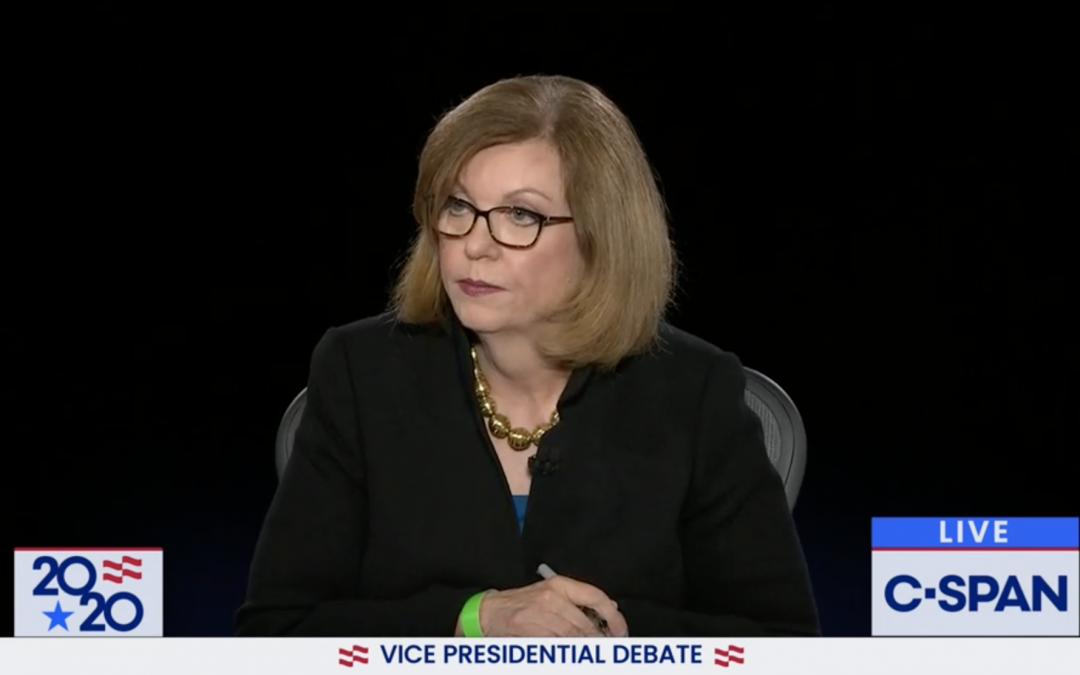WASHINGTON – The final question at the vice presidential debate came from someone who can’t vote, Utah 8th grader Brecklynn Brown.
It was a surprise to Brown when moderator Susan Page ended the debate with Brown’s question:
“When I watch the news all I see is arguing between Democrats and Republicans. When I watch the news all I see is citizen fighting against citizen. When I watch the news all I see are two candidates from opposing parties trying to tear each other down. If our leaders can’t get along, how are the citizens supposed to get along? Your examples could make all the difference to bring us together.”
Brown’s question was among more than 700 submitted to a statewide essay contest put on by the Utah Debate Commission with help from Utah schools and civic leaders. The contest was divided into four age categories: kindergarten to 5th grade, 6th to 8th grade, 9th to 12th grade and undergraduate college students.
This essay contest and an educational program were used to educate Utah students on the debate process. Students were given a 300-word limit to explain what question they would ask the candidates if they had the chance.
Humanities Team Coordinator Robert Austin said the commission and state educators hoped “to get a sense of what’s on the minds of young people these days.”
According to the Utah Debate Commission, the three categories that popped up most frequently in the submissions included the turmoil COVID-19 has created, racial inequality and how leadership can help unify the country. Some of the winners took on more specific topics.
Many of the youngest participants needed help from their parents to transcribe their thoughts, but Utah Debate Commission Executive Director Nena Slighting said, “We wanted to hear from the little voices as well.”
Fifth grader Victoria Peck won her category using a story she read about a migrant worker to illustrate a point about the stability she hopes all children can have. “I have a home that I love and am settled in. I want migrant worker children to have a home they can settle in, too.”
First generation college student and undergraduate winner Liz Moore, who attends the University of Utah, said that people who overcome tough backgrounds are “the exception and not the rule.”
Her question focused on giving people “more equal footing” in the educational world.
One of Slighting’s favorite questions was from a boy who said he wished the candidates would be nice like his dad because that’s what true leadership is to him.
“Kids are much smarter than we are giving them credit for,” Slighting said. “They are listening to adult conversations around the dinner table, in their neighborhoods and at their schools.”

